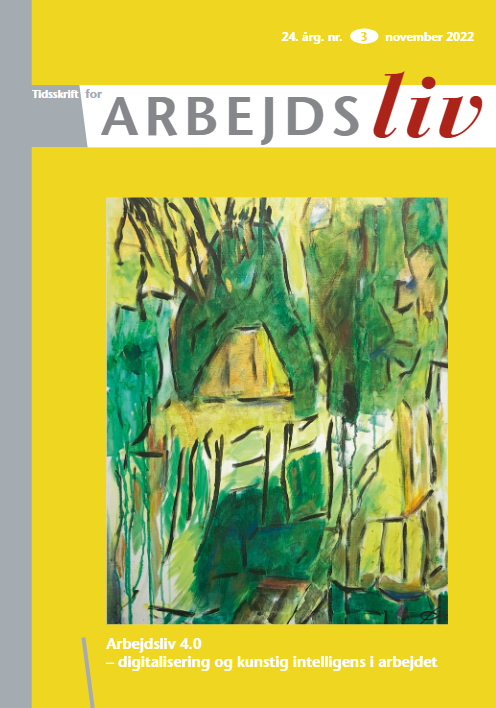Data-based social work: The fragile emergence of a data-based screening technology for the foster care
DOI:
https://doi.org/10.7146/tfa.v24i3.134747Keywords:
Databasering, Digitalisering, Socialt Arbejde, Organisering, InfrastrukturAbstract
In this paper, we embark to answer a question, which is often posed by practitioners as well as by researchers: Namely, how does new technologies transform the public administration of welfare services? However, rather than focusing on “the new technology” itself, we are investigating, how the interconnectedness between the organization and the new technology brings about new work practices. With inspiration from Science and Technology Studies, we analyze how a new, databased screening-tool for social work emerges in distinct ways as results of how it is embedded in the organization. The analysis is based on qualitative data from eight local municipalities, where the screening-tool is being implementing with the purpose of supporting the foster care consultants’ judgements of how children, who are placed in foster care, are thriving and learning. The analyses shows that their ways of working with the technology unfolds in three distinct ways – an individualized, a strictly systematic, and an interdisciplinary work practice. On this basis, we propose that new technologies for databased decision-making in welfare work, should not be viewed as neutral and universal solutions, but rather as new practices, which are to be developed in close collaboration with the professionals, their workplaces, and their working conditions.
Downloads
Published
How to Cite
Issue
Section
License
Copyright (c) 2022 Forfatteren og tidsskriftet i samarbejde

This work is licensed under a Creative Commons Attribution-NonCommercial 4.0 International License.
Forfattere, der publicerer deres værker via dette tidsskrift, accepterer følgende vilkår:
- Forfattere bevarer deres ophavsret og giver tidsskriftet ret til første publicering, samtidigt med at værket ét år efter publiceringen er omfattet af en Creative Commons Attribution-licens, der giver andre ret til at dele værket med en anerkendelse af værkets forfatter og første publicering i nærværende tidsskrift.
- Forfattere kan indgå flere separate kontraktlige aftaler om ikke-eksklusiv distribution af tidsskriftets publicerede version af værket (f.eks. sende det til et institutionslager eller udgive det i en bog), med en anerkendelse af værkets første publicering i nærværende tidsskrift.
- Forfattere har ret til og opfordres til at publicere deres værker online (f.eks. i institutionslagre eller på deres websted) forud for og under manuskriptprocessen, da dette kan føre til produktive udvekslinger, samt tidligere og større citater fra publicerede værker (se The Effect of Open Access).





